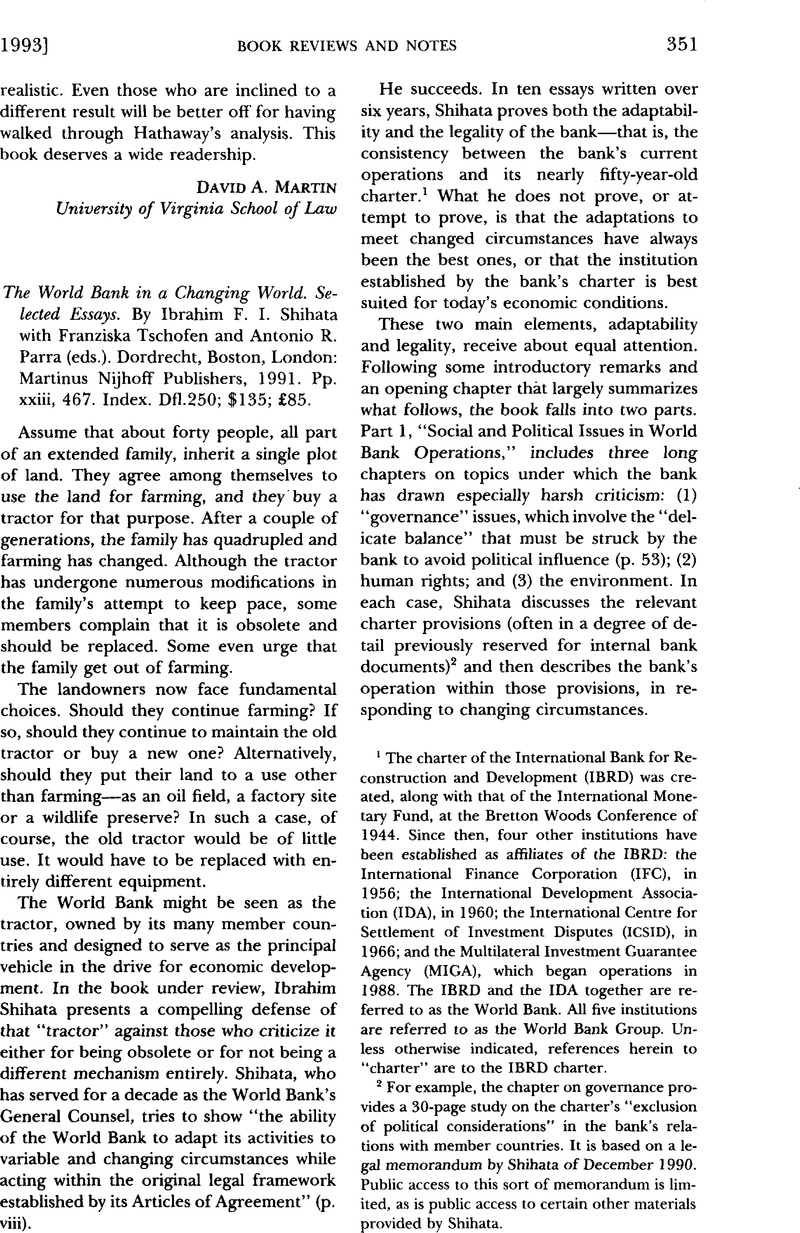No CrossRef data available.
Article contents
The World Bank in a Changing World. Selected Essays. By Ibrahim F. I. Shihata with Franziska Tschofen and Antonio R. Parra (eds.). Dordrecht, Boston, London: Martinus Nijhoff Publishers, 1991. Pp. xxiii, 467. Index. Dfl.250; $135; £85.
Published online by Cambridge University Press: 27 February 2017
Abstract

- Type
- Book Reviews and Notes
- Information
- Copyright
- Copyright © American Society of International Law 1993
References
1 The charter of the International Bank for Reconstruction and Development (IBRD) was created, along with that of the International Monetary Fund, at the Bretton Woods Conference of 1944. Since then, four other institutions have been established as affiliates of the IBRD: the International Finance Corporation (IFC), in 1956; the International Development Association (IDA), in 1960; the International Centre for Settlement of Investment Disputes (ICSID), in 1966; and the Multilateral Investment Guarantee Agency (MIGA), which began operations in 1988. The IBRD and the IDA together are referred to as the World Bank. All five institutions are referred to as the World Bank Group. Unless otherwise indicated, references herein to “charter” are to the IBRD charter.
2 For example, the chapter on governance provides a 30-page study on the charter’s “exclusion of political considerations” in the bank’s relations with member countries. It is based on a legal memorandum by Shihata of December 1990. Public access to this sort of memorandum is limited, as is public access to certain other materials provided by Shihata.
3 Shihata notes that the views he states on legal issues are also his views as General Counsel of the Bank (p. x).




